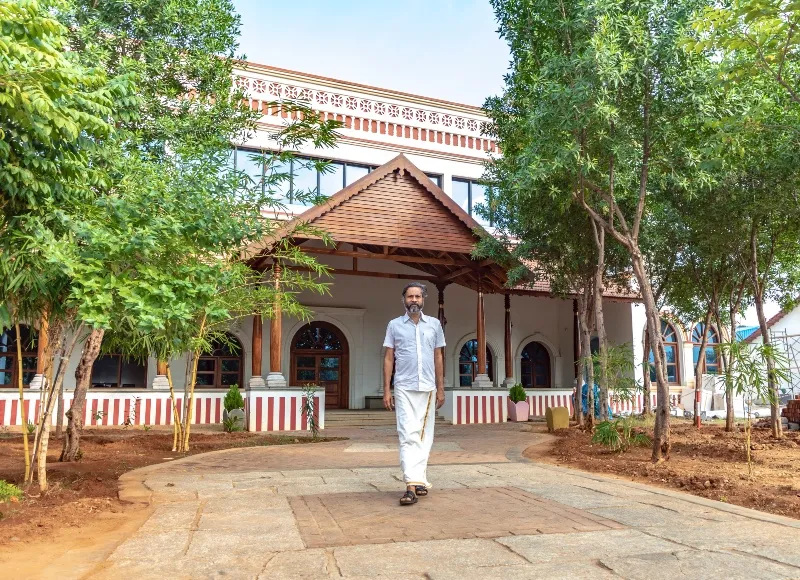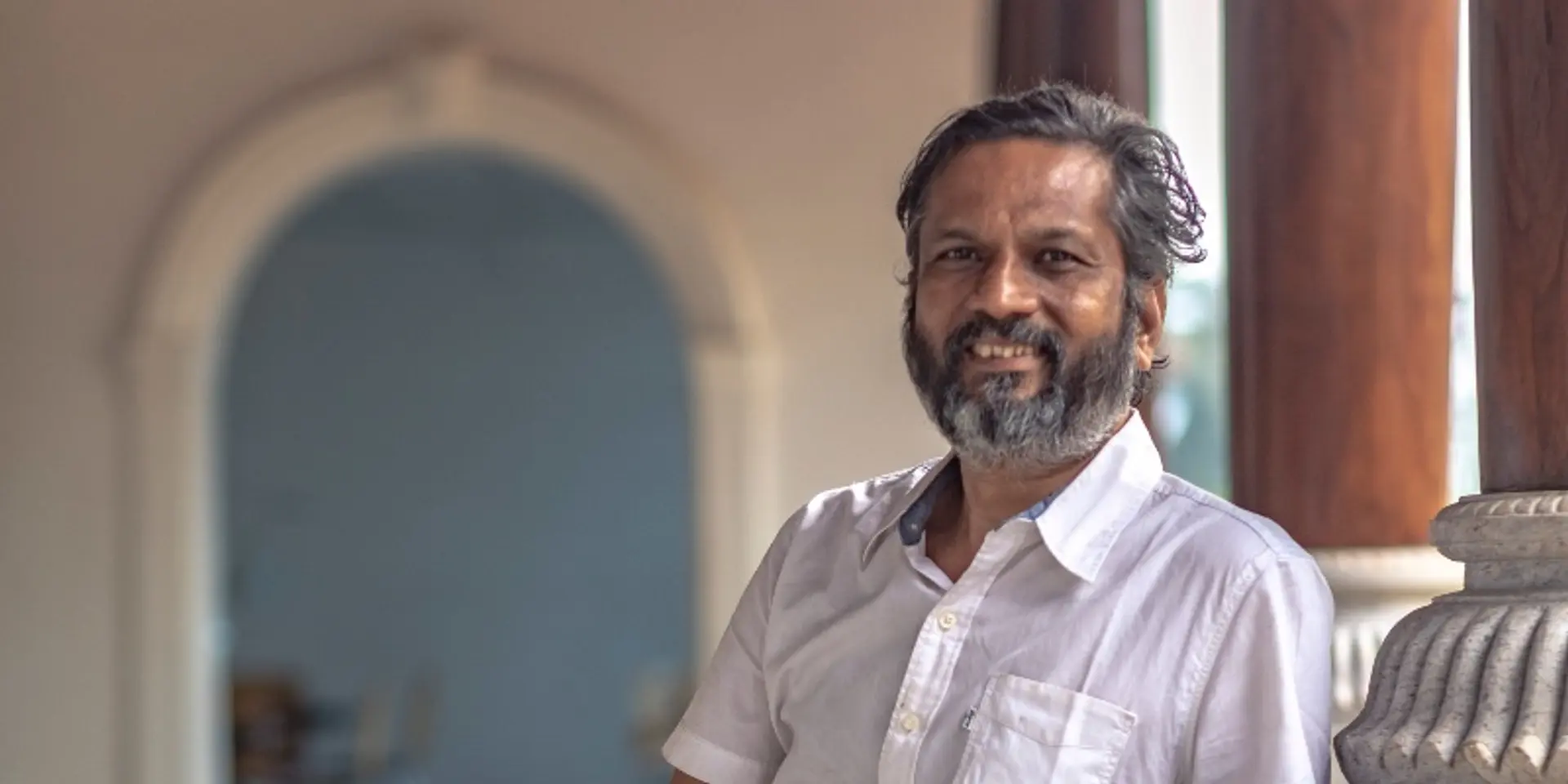From rise in income to community development, how Sridhar Vembu's Zoho is transforming rural India
A study conducted by the Economix Consulting Group (ECG) revealed several areas of positive impact in Tenkasi, Tamil Nadu, owing to Zoho’s move to open an office in the area. Sridhar Vembu, Co-founder and CEO, Zoho, talks about this impact.
The COVID-19 pandemic reduced boundaries like never before. For Chennai-headquartered Software-as-a-Service (SaaS) company , this only meant expanding its rural initiatives, which it has been working on for the last 25 years.
In 2011, Zoho opened its first rural office in Mathlamparai, Tenkasi, a newly-created district in Tamil Nadu, with six employees. At present, the office has around 500 employees.
With people moving back to their hometowns amidst the pandemic, Zoho intensified its rural revival initiatives. It opened 30 satellite offices in rural and non-urban areas around the world. In India, it started catering to employees who wanted to continue working from home in Tamil Nadu, Kerala, Andhra Pradesh, and Bihar.

Sridhar Vembu
The company — which believes software can be built from anywhere and has traditionally stayed away from urban centres — now plans to open 100 new offices around the world.
A study conducted by Chennai-based Economix Consulting Group (ECG) revealed several areas of positive impact in Tenkasi, including overall income, women empowerment, education and skill-building, employment, and community development.
In fact, according to the locally-elected and administrative officials:
- Zoho is one of the main reasons for Tenkasi to get the district status.
- New housing facilities are constructed to accommodate Zoho employees.
- Company employees have started investing in agriculture.
- Farming initiatives by Zoho are creating awareness about organic farming among the local farmers. In fact, the panchayat has started producing vermicompost.
The study also highlights the positive impact on Zoho employees hailing from Tenkasi, Tirunelveli, and surrounding areas. These include improving their standard of living and supporting their extended families and friends financially.
The report says that as per the last available public data, female literacy in Tenkasi is 45 percent, while women’s participation in the workforce is around 35 percent (agricultural), and 58 percent (non-agricultural). However, the nature of work largely remains in low-paying jobs.
In a conversation with YourStory, Sridhar Vembu, CEO and Co-founder, Zoho Corp, talks about the journey and the impact of Zoho’s initiatives in rural India.
Edited excerpts of the interview:
YourStory [YS]: Why choose to start with Tenkasi? How did it help people living in the region?
Sridhar Vembu [SV]: The idea for satellite offices first came when we realised that majority of our employees were recruited from outside of Chennai. We wanted to reverse this trend of rural-urban migration and instead create jobs where the talent is living.
We were looking for a town of about one lakh population along the Western Ghats with basic infrastructure facilities, and Tenkasi was a beautiful location.
We rented a small office in the town and moved six people from Chennai to that office. Later, we purchased an old fruit pulp factory in a village called Mathalamparai near Tenkasi and converted that to our campus.
Today, we have nearly 500 employees working at Tenkasi. We also opened the Zoho Schools of Learning to train high school and diploma students.
The ECG study has helped us understand the positive impact we have had in Tenkasi over the last 10 years. This includes an increase in overall income, high-tech skill development, employment opportunities for youth, empowered women with greater agency, and significant contributions to the community's socio-economic progress.
YS: From Tenkasi, you have moved to different villages and Tier II and III cities. Can you tell me the experiences and training procedures you have used?
SV: We have followed our Tenkasi model in each of these locations. When we open a new office, we move experienced people from our existing offices to the location to act as anchors and catalysts and start recruiting and training locally. We have built close to 20 such rural offices in the past year.
At present, owing to the second wave of the pandemic, these offices are temporarily closed to ensure safety and will resume operations as conditions become better. To identify and nurture talent in rural areas, we run an incubation programme. We pay a stipend during the training, which is typically for one to three months.
The hands-on training emphasises practical skills. We don't look for prior expertise, but for the ability and passion to learn. Once a candidate proves suitable and completes their training, we offer them employment with Zoho.
YS: How have these initiatives helped Zoho as a business scale and grow?
SV: Through this initiative, we can attract talent from a broader pool of candidates, many of who would have been overlooked by traditional hiring models.
We are fortunate to have a very dedicated and loyal group of employees, which is the biggest asset any company could have because of creating such an opportunity.
Our investment in training and skill development helps the communities we serve and the company in the long term.
YS: How do organisations benefit from this in terms of socio-economic growth?
SV: Given the ground reality in India, private organisations need to step up to create skills. Such investments have a huge pay-off.
To illustrate, a rural district like Tenkasi has an annual per-capita GDP of about $1,500, with a typical worker creating an annual output of about $3,000.
By investing in skills, we can raise the annual productive output to $10,000-$20,000 easily, which allows us to raise the wages of the workers and also invest in local infrastructure.
The gains from this growth are immense. Organisations that can raise productivity in this way can achieve superior growth and profitability in the long term.
YS: Moving forward, what are your plans?
SV: Since last year, we have opened around 20 rural offices with 20-30 seats each, with the potential to expand up to 100 seats. We plan to open more offices in India and other countries. However, we have halted our plans amidst a second wave of the pandemic.
There is a lot of latent talent in the world that is waiting for an opportunity. The concentration of jobs in urban cities has taken away talented youth from the villages where they are most needed. By bringing high-paying jobs to villages, Zoho is helping restore the talent where it belongs.
Over a period, we can see it benefit the local community and lead to overall development and economic growth. The ECG study has helped us capture the long-term impact of rural offices and validated our approach.
At present, we are focussing on helping people stay healthy and safe. Eventually, we expect Zoho to have a substantial percentage of its employees based in rural areas playing a key role in skill development and job creation in those communities.
Edited by Suman Singh








![[YS Exclusive] RevX Capital launches second fund; aims for Rs 750 Cr corpus](https://images.yourstory.com/cs/2/a1c35720cce711efabacb7b767fb7698/CopyofCopyofNewPPTTemplates-1736763309419.png?mode=crop&crop=faces&ar=1%3A1&format=auto&w=1920&q=75)